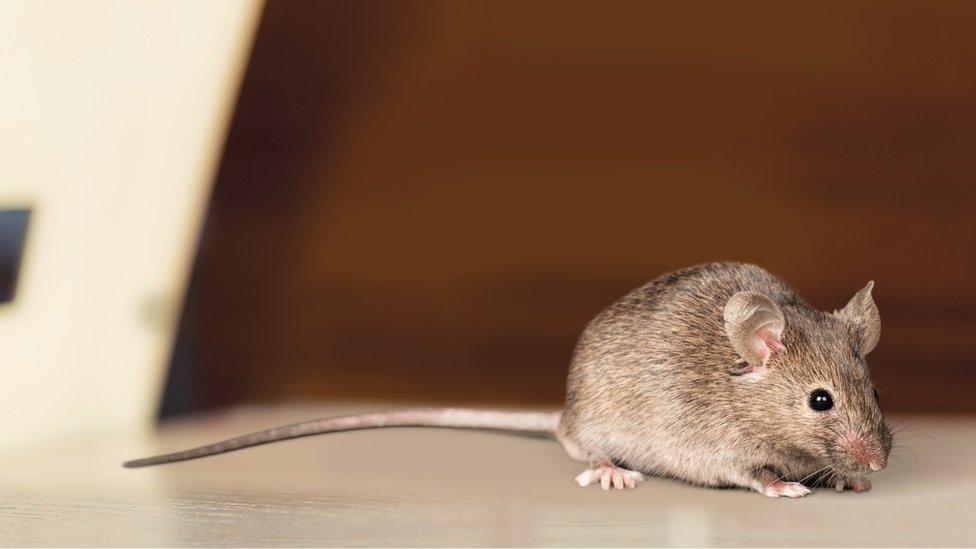Dog age: New way to calculate your dog's age in human years
- Published
- comments

Researchers looked at the DNA of 104 Labrador retrievers for their study
You've probably come across the calculation before - to work out the human age of a dog, you simply multiple its age in doggy years by seven. Easy right?
Well, not quite! A new study suggests that this formula is actually a bit of a myth.
Researchers have come up with a new way of converting dog years to human years and it uses a little more science compared to the more popular formula.
Human cells contain DNA which carry important information about how our bodies are made. Our DNA has marks on it and scientists have found that these change over time as we get older. These changes can be used to track a person's biological age.

The DNA of animals like mice are though similar changes to humans
The DNA of species like mice, chimps, wolves and dogs are thought to go through similar changes to humans, and researchers at the University of California in San Diego have used this to find out how the human biological clock compares to that of a dog.
For their research, the team focused on a a single breed of dog - Labrador retrievers! Their findings revealed that dogs (or at least this particular breed) and humans share certain similarities in their aging processes and they were able to use this information to translate a dog's age to their human age.
According to the new formula which can be used for dogs aged one and above, a canine's human age roughly equals 16 x ln(dog's age) + 31.
To work out your dog's 'human' age first enter the dog's age then press 'ln' on a scientific calculator.
Then multiply the figure you get by 16, and finally add 31.
Using this formula, a two-year-old dog is 42.1 in human years, a five-year-old-dog is 56.8 and a ten-year-old dog is 67.8!
- Published7 June 2019

- Published18 February 2020

- Published25 June 2019

